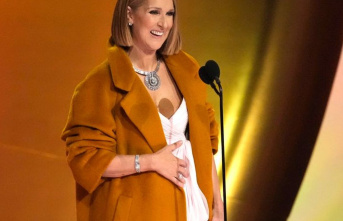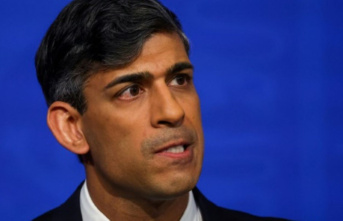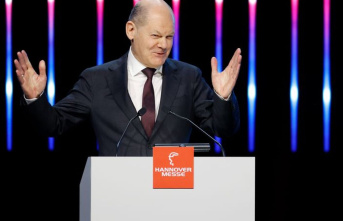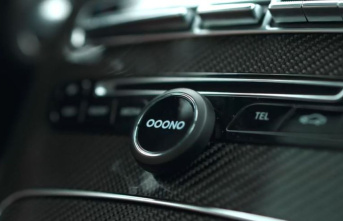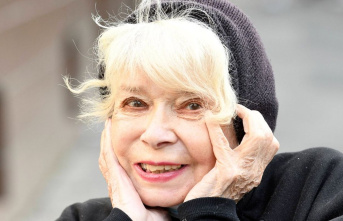Having a child is still often seen today as the culmination of any relationship. You wrote a book about not being a mother, Ms. Pungs. Why?
Nadine Pungs: One in five women in Germany was childless in 2018 – either intentionally or unintentionally. Conversely, this also means that four out of five women are likely to have at least one child in their lifetime. The non-mother is therefore rather the exception. A kind of loose contact in the social order. It arouses suspicion because values such as warmth, care and love are still associated with being a woman. However, as soon as a woman decides against procreation, something inside her seems to be broken.
You're one of those "broken" women, if you will, because you made a conscious decision not to have children. How has that shaped your life?
Over the years I had to justify my refusal to become a mother again and again. But I don't feel discriminated against if someone tells me that I'm supposedly being selfish or that I'm going to die lonely without children. These claims have nothing to do with my life. For me, the book is therefore more about reproductive and sexual self-determination, whether mother or non-mother, male or female or non-binary. It's about equality.
More and more women are fighting for equality...
Exactly. I also believe that we have already achieved a great deal. We've never been so free and in Germany we speak out of a privileged situation about the problems. But there is still a huge gap between the freedom of choice of every woman and what society expects of our gender.
What exactly do you mean by that?
For example, I had an abortion myself. It was then that I felt for the first time that there really is no real physical equality for us women. I didn't realize that to that extent beforehand. When I decided to have it sterilized a few years later, it still kept me very busy.
Many people still associate abortion with regret. Do you regret taking the step?
Not at all. On the contrary: Whenever I see a woman with a pram, I'm relieved that I'm not that woman, even if motherhood is perhaps the most beautiful thing in the world for this woman. I'm glad I was able to choose a different path in life. The narrative of the grief-stricken woman who carries around the trauma of having an abortion is simply not true. There are numerous studies that prove that a self-determined abortion of an unwanted pregnancy does not make you unhappy. The emotional dramatization often comes from outside.
You mean the dramatization of abortion comes from - politics, society, men?
Society still defines fertility as the norm. It's easier to find a fertility clinic than a doctor who performs abortions. We women are obviously expected to want to give birth to babies. This is also reflected in case law. The Federal Constitutional Court last clarified in 1993 that in Germany there is a fundamental obligation to carry an embryo to term.
A duty?
Yes, mandatory! Because of "my stomach belongs to me". Then the social pressure. "You will regret it," they say, as soon as you decide not to have children. That sounds like emotional blackmail. This leads us to distrust our own beliefs. It was the same for me, even though I knew as a child that I didn't want children.
Can one then speak of free will at all when women become pregnant these days?
I believe that a number of women become pregnant because that's how you do it and because that's the "normal" way of life. Because you want children. And then they sit there with their baby and some of them maybe have a kind of regretting motherhood. Although they love their children, they hate motherhood. As for me, I'd rather regret not having children than regret having children. Because it makes a difference if I'm just arguing with myself or with the guy that came out between my thighs.
That's why you decided to have sterilization in your late 30s...
Exactly. Not only did I get sterilized for contraceptive reasons, but also to rid my body of societal and patriarchal expectations. I am no longer available. For me it was an emancipatory act of self-determination. Since giving up my fallopian tubes, I've been complete. My body is complete now. Without fertility I feel much more feminine than before.
Most women still grow up with the classic role model. As children, we play with Baby Born and learn to care for children. How do I find out if I really want children - or if I just want to conform to society's expectations?
Baby born is not a harmless gift. Actually, this cute little baby doll shows the girl exactly what place she will later have in society. The question that every person should therefore ask themselves: Is it really my own desire to have a child - or do I think I have to want a child because that's how I learned it? Why do I want children at all? What are the actual needs? It is very difficult to find an answer to these questions, but the answer is elementary.
You've already found your answer - the non-mother's happiness. How exactly does your dream life without children look like?
My non-mother happiness consists first of all of very mundane things: I can sleep late, I can pitch my tent every day if I want, and I don't have to listen to recorder concerts. In fact, I simply could not face the thought of exposing my child to misfortune, illness, or death. I would worry all the time. From morning to night. Would probably be quite uncomfortable and controlling. So I'm a better person without kids. And that's okay too, I think. Not being a mother is not selfish, but responsible. It's like this: Just because I can become a mother doesn't mean I have to do it.




